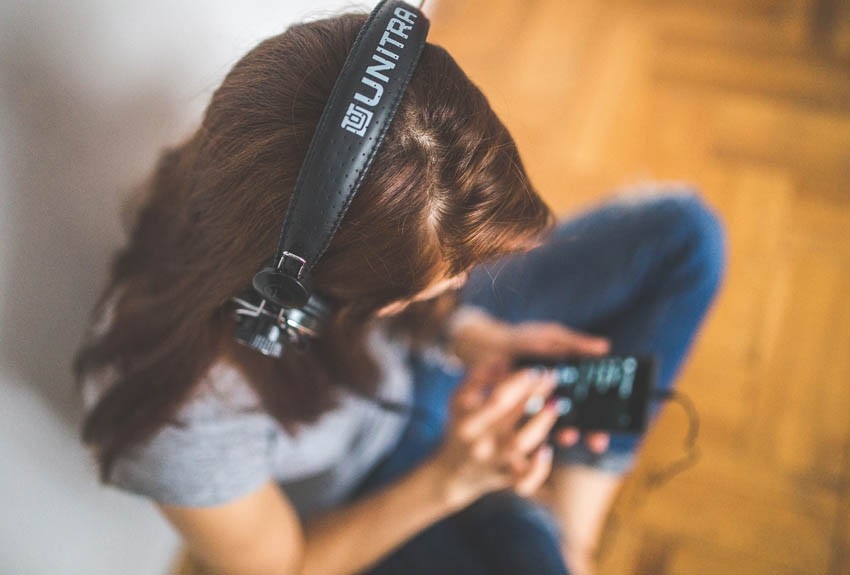The SANE Blog
Mental health in music
Have you ever listened to a song and strongly related to the words or the music? It can be comforting to hear someone else express emotions that reflect how you are feeling or what you are thinking.
Music is powerful and very personal. It can affect our emotions, motivate or comfort us, and above all give us pleasure! Music plays a major part in people’s lives. And for many their musical tastes and interests are strongly tied to their sense of identity.
Music can be an effective way to make us feel happy or improve our mood. Here are three ways you can use music to support your mental health and wellbeing.
- Share music with friends
Many people get a sense of pleasure when they share music with others. This can be a great way to improve mood and feel connected. You could go to a music concert with some friends. Or start a music-sharing group (similar to a book club), where you introduce music to each other and discuss your reactions. - Make music
This can have a positive impact on your mood and sense of wellbeing. Making music with others is also a great way to feel connected. If you’re worried about your musical ability, drumming groups are a great way to express your feelings without words.
You can look for music groups in your community. Informal drumming, or singing groups, do not require experience or ongoing commitment. Alternatively, you can develop your skills in a group lesson, like a ukulele group. A great place to start is Meetup.com, an online bulletin board, where people advertise events and catch-ups in your community around specific interests. - Create playlists for different moods and needs
Listening to music is a good way to regulate your emotions. You can make different playlists (or a mixed tape if you are feeling old school) for different purposes. Think about the music you find helpful when you are in certain moods. Put these songs into a ‘mood playlist’, and play it when you need support. Playlists can include:
– Relaxation: Music you find calming. Play when you feel anxious, agitated, having trouble sleeping, or if you need a break from ruminating thoughts.
– Put a smile on your dial: Your favourite songs that put you in a good mood, or remind you of fun times. Put this on when you need to lift your mood.
– Confidence boosters: Songs with a great message and good beat. These will help remind you of your own abilities and strengths.
– Movers and shakers: Energising and motivational songs, such as upbeat tunes or karaoke favourites. This music will help you soldier on, even when you feel indifferent or fatigued. Great to play when doing household chores, or attempting a difficult workout at the gym.
– Someone gets me: Songs that help externalise and validate your feelings. It can be comforting to hear someone else express emotions that reflect how you are feeling, or what you are thinking. But take care when listening to this music! Ensure it does not prolong or exacerbate your low mood, or unhelpful thoughts!
Unhealthy uses of music
Research has shown that for some people music may cause unpleasant emotions and prolong low mood and negative thoughts. It is therefore important to think about how you use music when experiencing a low mood or symptoms of a mental illness.
You need to be aware of the affect music has on your state of mind. If it tends to prolong negative thinking, exacerbate low mood, incite feelings of anger, or make you feel overwhelmed, then you need to be careful.
When this happens try choosing mood lifting music, rather than songs that match your feelings. Engage your usual self-care strategies. And if you continue to struggle, seek professional support.
And don’t forget that it's all about what you find enjoyable, meaningful, and helpful. So make a playlist, listen to music, join a music group, or maybe even write a song!
Lisa-Marie is a Registered Music Therapist (RMT) and Provisional Psychologist. She has experience working in mental health in acute care, rehabilitation, and grief and loss.
She hosted an online discussion about music therapy on SANE Forums. The discussion is now closed but you can still browse the conversation.
Want to know more about music therapy?
- The Australian Music Therapy Association has a range of information about music therapy and a list of Music Therapists in every state.
- Watch this TED talk by Robert Gupta, a violinist and doctor who is passionately interested in the power of music in mental health.
When you subscribe to the blog, we will send you an e-mail when there are new updates on the site so you wouldn't miss them.
